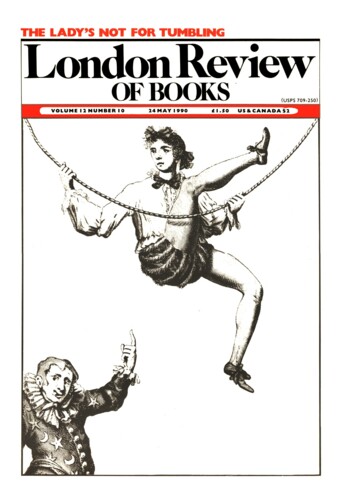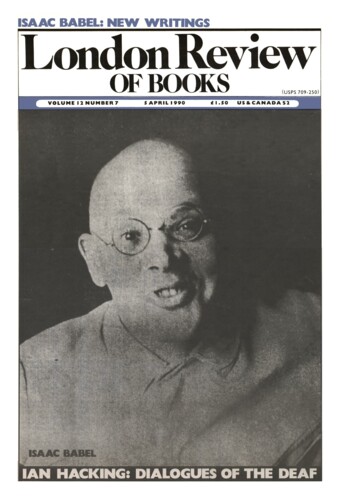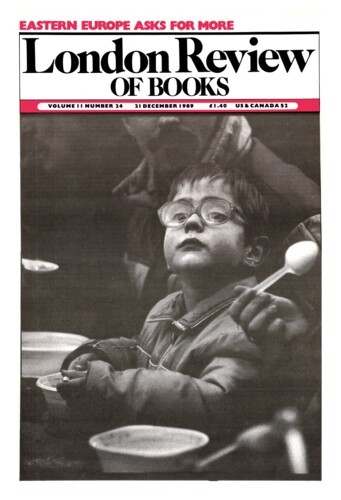Kind Words for Strathpeffer
Rosalind Mitchison, 24 May 1990
Hugh Kearney has written a book to assert the reality of the British Isles as an intercommunicating group of cultures with many features in common but also with strong regional or national differences. It is a timely reminder that the political dominance of these islands by England from the 17th century covers only a small part of their various histories. We are reminded vigorously of the Irish cultural dominance in the sixth and seventh centuries, the political dominance by Scandinavia of almost the whole island complex in the tenth century, and the control by a relatively small group of Normans in the 12th and 13th centuries. These periods show that there is nothing historically inevitable in the political and cultural rule of Big Brother in London and the South-East. An interesting suggestion is that the emphasis on the South-East was originated by the market power of London rather than by religious, political or administrative changes instigated by the English state. London’s potential as a port put it into the international range of city size along with Antwerp and Venice, but for this to be effective the food supplies of the city had to come from all the coastal and riverine areas of Southern Britain. Culture, religion and politics followed the shopping basket.




